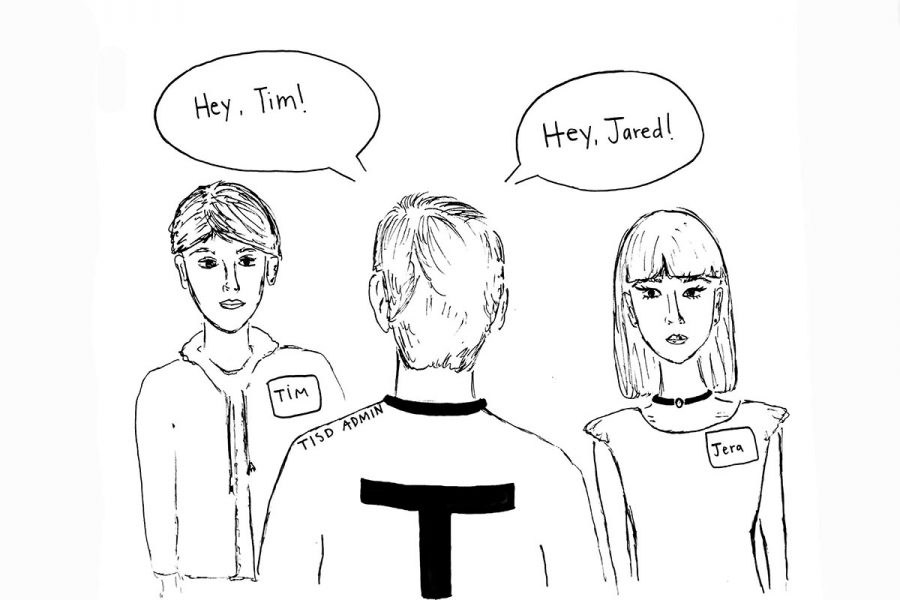Leave me my name
Ambigious policy works against individual freedoms
December 19, 2017
We all feel in limbo at school. We feel our energy drained and our mental health sapped by social and academic expectations, but we each have an identity we call our own–at least a large majority does–and our names are a primary part of that identity. The school policy that forbids the use of preferred names disenfranchises some students and should be changed.
State law requires that schools use a student’s legal last name. It also requires that official documents, like transcripts, contain the student’s full legal name and gender. It does not address first names, leaving schools able to create their own policies.
At the beginning of the year, teachers received instruction to use only the name in TEAMS, the school’s data management system. Shortened versions of names, like Will for William, are acceptable. This puts transgender students at a disadvantage, making them feel as though their identities are not respected by the school system.
While the policy is meant to promote consistency, it limits the opportunities for students whose names are not aligned with their gender identity. This puts these students in uncomfortable and embarrassing situations that interfere with the learning environment.
Another problem with the policy is that it’s too loosely used. Some students have been known by their nicknames since they began attending school, so this makes them more easily transferred to the school environment where teachers and administrators use them. Students with foreign or difficult to pronounce names can have preferred names that are accepted without question. However, the issue is frequently avoided when it comes to students with non-conforming gender identities.
The solution is simple: a name change form. Parents could request that their child’s preferred name be added to TEAMS. Other schools in Texas and around the country have already implemented them. The obvious limitation of a name change form is that students whose parents do not submit a form cannot use a preferred name. However, this is a step in the right direction.
There may occasionally be a parent who turns in a form with a nickname that seems a little outrageous by traditional standards, but these instances are likely to be minimal. When they do happen, they can be dealt with on a case-by-case basis.
This policy disenfranchises not only the students with non-conforming gender identities but also students who prefer their popularized nicknames. Administrators and teachers are caught in this gray area between policy and performance: no one knows what is right, so nothing is done.
Principal Brad Bailey said that policies are reviewed annually. If this one comes up, and it should, administrators should be looking to improve such policy so that it supports a healthy learning environment for all of us who walk the halls of Texas High.














